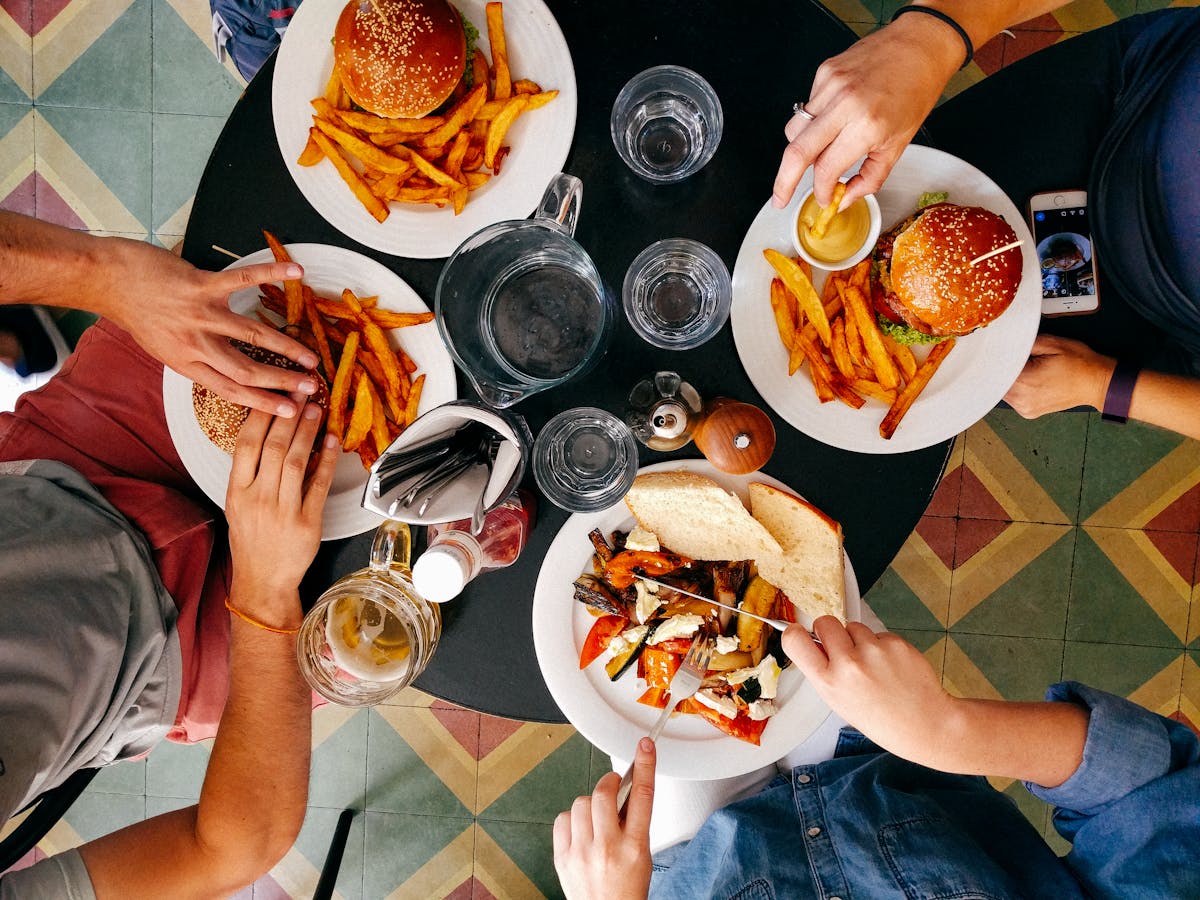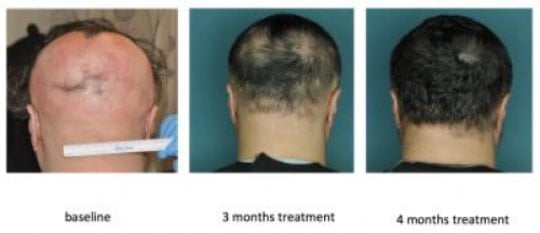To follow most diets, you have to give something up: dessert, carbs, or even a whole day of eating. But often, that’s not all. Sometimes, your mental state and emotional health can take a hit too. Here, four experts tell Inverse the sneaky ways diets like intermittent fasting can both improve mental health and jeopardize it.
Intermittent fasters break up their normal eating routine by regularly abstaining from food for periods of time. Some people practice an extended 16-hour overnight fast, while others go full days without food. There is a growing body of research showing that IF can kick off a cascade of health benefits, including weight loss, lower blood pressure, stabilized blood sugar, and reduced inflammation, and it can potentially prevent disease and the consequences of aging. Fasters often report better moods and improved focus, and some even say it helps reduce depression and anxiety.
But some dietitians caution that so-called “restrictive diets” can be dangerous for some people, exacerbating unhealthy eating patterns like emotional eating, binge eating, and eating disorders.
“Intermittent fasting is a gateway to an eating disorder,” Evelyn Tribole, registered dietitian and co-author of Intuitive Eating: A Revolutionary Program That Works, tells Inverse.
Nutrition therapist Sondra Kronberg, founder and executive director of the Eating Disorder Treatment Collaborative, agrees. “A very small percentage of the population can do this kind of dieting and not have any long-term impact. And by long-term impact I mean not have any recoil,” she tells Inverse.
Kronberg uses recoil, a reference to the kickback of a gunshot, to describe unforeseen effects of IF. “People can go on a fast and think that it is going to be healthy for them, and it may in fact be, but then they’ll come off and they’ll binge for three weeks,” she says.
To avoid IF’s possible recoil, it’s important to know the fine line between dieting and disordered eating, as well as investigate the reasons we diet in the first place.
Why Do We Diet?
The social pressure to diet starts young — really young — and this is what has some nutritionists and eating disorder experts worried about people who want to try restrictive diets. In 2008, a study on nearly 200 five-year-olds showed that a mother’s dieting behavior shapes how her daughter thinks about dieting. Other estimates suggest that one-third of preadolescent children report dieting.
The pressure builds throughout middle and high school, as the media projects beauty ideals that often differ from reality. Diet books crowd bookstore shelves, magazine articles plaster diet tips across their pages, and Instagram influencers peddle “skinny tea” as a miracle weight loss strategy.
“Everybody is attached to a device that flashes a million times a minute — not just the messages of what you should look like, but also messages about feeling bad about yourself,” Kronberg says, noting that these messages increases a person’s vulnerability to developing an eating disorder and dieting. “It’s part of: Get up, breathe, brush your teeth and go on your diet.”
Dawn Brighid, an integrative nutritionist at New York’s Eleven Eleven Wellness Center, tells Inverse she sees a lot of anxiety around food. “I see people in tears because they’re hungry and they don’t know what to do and they were told not to eat X, Y, Z, and now they feel like their diet is so restrictive,” she says. “It’s like information overload.”
Many people diet to lose weight, but not always for health-related reasons. “We have a weight bias in our culture and there is a hierarchy of thin versus normal versus overweight,” says Kronberg, who has counseled patients with eating disorders for over four decades. “You know, thin people get better jobs, better boyfriends, better lives. It’s coveted.”
Kronberg has found that dieting is often about finding control and a sense of accomplishment in a chaotic world.
“People who are genetically predisposed to developing an eating disorder are much more vulnerable to the chaoticness of the world, global, and economic threats, not just the chaoticness of their family,” she says.
Between 2013 and 2016, almost half of Americans tried to lose weight in the last 12 months, according to a data brief from the Centers for Disease Control and Prevention’s National Center for Health Statistics (NCHS).
A lot of the time, diets don’t work — or at least, their impacts don’t last. Across 31 long-term diet studies, a group of UCLA psychologists found in 2007 that dieters typically lost five to 10 percent of their starting weight in the first six months, but one- to two-thirds of people regained more weight than they lost after several years.
When diets don’t have the intended result, people plunge into shame: Diet culture tells them they are lazy and undisciplined. And so, they look for the next best diet, and the relentless cycle continues.
“Not only does dieting not work, it causes harm. That’s the bottom line,” Tribole says. “It increases the risk of eating disorders and it really disconnects people from their bodies.”


When Does IF Become an Eating Disorder?
There is a fine line between practicing IF and engaging with disordered eating, and Kronberg says the slide can happen quickly.
She encourages dieters to examine the “degree to which any diet structure or diet begins to interfere with the quality of your life, your ability to be spontaneous, present, real, engaged, your personality, how it creates more isolation. And ultimately, how it shows a mental imbalance, then a physical imbalance, like lethargy, depression, weakness, mood swings, hyper-anxiety.”
The signs that you’ve slipped into disordered eating can be as subtle as avoiding a party or social event because of the food being served, or skipping a restaurant because it doesn’t meet your specific eating criteria.

She does not recommend IF for people who have dealt with eating disorders in the past and for those who show the risk factors — a much bigger group of people than you might think.
“If I’m genetically predisposed to be a size that the culture is not accepting of, then I’m already genetically predisposed to developing an eating disorder,” Kronberg explains, because that feeling will lead to un-nurturing behavior to lose weight.
She lists a number of qualities that put people at risk for an eating disorder, including being perfectionistic, rigid, comparative, number-oriented, anxious, depressed, and obsessive. All of these variables can come together, especially during periods of emotional turmoil, to turn IF into a full-blown eating disorder.
The Risks of Losing Touch with Your Body
Fasters who feel hunger pangs may drink lots of water, tea, and black coffee to push through the craving, but some dieticians warn that ignoring bodily cues for hunger can have unforeseen consequences.
Tribole believes ignoring these primal signals is a dangerous practice that can lead to binge eating and other unhealthy behaviors.
Binge eating during IF is a natural response because the body is trying to survive and heal, she says. Once you venture into primal hunger, a survival mechanism kicks in, making it feel like when you do eat, you may feel like you cannot stop.
“It’s like when you hold your breath for a long period of time,” she says. “When you have that first breath, it’s not going to be a polite inhale. It’s going to be a gasp for life. And that’s what binge eating is.”
“It’s like when you hold your breath for a long period of time. When you have that first breath, it’s not going to be a polite inhale. It’s going to be a gasp for life.
And that’s what binge eating is.”


The Positive Mental Health Effects of Fasting
Not all mental health effects of restrictive diets are negative. For many people, IF has made them feel better, not worse. Elizabeth Wheeler, a 27-year-old from Tennessee, tells Inverse that IF radically changed her life.
“I’m just generally happier,” Wheeler says. “Things are rolling off my shoulders a lot easier than they have in the past. I usually overthink and internalize, which causes stress and then, depression, and that cycle is kind of broken.”
After gaining weight after the end of a relationship, she started IF to shed pounds after previously trying the Whole 30 diet, going vegan, and considering Weight Watchers. She says the simplicity of IF helped her stay consistent. In a little over three months, she lost 37 pounds and now reports that her depression was mitigated and that she has consistently higher energy levels. Recently, she has also incorporated the ketogenic diet in addition to IF.
Some human clinical trials on IF, reviewed in the Journal of the Academy of Nutrition and Dietetics in 2015, suggest positive improvement in self-confidence and mood along with reduced tension, anger and fatigue from the practice.
Wheeler says IF was the key to breaking her cycle of unhealthy eating patterns. “I emotionally binge eat,” Wheeler says. “I have a history of anxiety and depression and I’m seeing nothing but positive outcomes from this diet on those fronts personally.”
Brighid, the integrative nutritionist, says she has seen clients have positive effects from IF, but cautions that there may be confounding factors.
“Anecdotally, I’ve definitely seen people just absolutely feel better on these diets, like intermittent fasting,” Brighid says. But it might not be fasting that’s making them feel better. “A lot of times, it’s because they’re eating low-sugar, low-processed foods, low junk food; it’s like taking out that like low-hanging fruit. It’s kind of hard for somebody not to feel a little bit better.”

Dieting Has Social Side Effects
Wheeler says the first two weeks of intermittent fasting were the most difficult, but it wasn’t because of the hunger pangs or side effects. It was the social pressure and judgement that almost made her throw in the towel. “The only difficult part about getting started was explaining it to people because that peer pressure is real,” she says.
Fasting alongside coworkers who are eating their lunch, she says, meant having “that hard conversation of: ‘I’m unhappy with my health, I want to change it and this is the way I’m doing it.’”
She looked online for support, joining a Reddit group centered on intermittent fasting, with over 400,000 members. There are similarly (though not as popular) groups for the paleo diet and Whole-30 diet; in all of them, dieters share their before/after photos, triumphs, and woes.
Kronberg says these online groups can make people feel validated and connected.
“To have a group of people that support them, like the intermittent fasting dieting group, it gives you a sense of community and gives you a place to go. It gives you all the things that the church and religion used to do for us on a daily basis.” She’s referring to the connection, support, community, and validation we used to get from religion, which diets substitute with food, weight, and exercise protocols.
Brighid says these groups are important but can also be risky: Misinformation can spread in food-oriented communities.
“The average person who doesn’t have any kind of health background can adopt a diet, and let’s say they got pregnant after having infertility issues,” Brighid says. “They’re able to share that information and a community is created around that.”
Online community groups can provide emotional support, motivation, and accountability, but looking online for legitimate advice on nutrition, exercise, or whether to try diets like IF is not encouraged, Brighid says. Any drastic lifestyle shift like IF should be undertaken with the guidance of a trusted health professional.
But even health professionals have limited knowledge about the mental health impacts of IF, especially over time. As Tribole and Brighid point out, scientific studies often focus on measurable physiological outcomes, not mental and emotional health effects. As with all diets, more long-term studies on human subjects must be done to make any concrete conclusions.

Dieting: A New Religion?
Dieting as we know it has its roots in the 1800s, Paul Freedman, Ph.D., a food historian from Yale University, tells Inverse. First, Sylvester Graham invented the graham cracker and preached an ascetic theology centered around a healthier diet. Later, the two Kellogg Brothers invented dry cereal and likewise promoted it as part of a healthy lifestyle starting with “the most important meal of the day”: breakfast.
“The intermittent diet, in my mind, is just another manifestation of a long-term, basically 200-year-old trend in America to alter your diet for reasons that are partly health and partly personal improvement with a spiritual but not organized religious overtone,” Freedman says.
For thousands of years, people’s dietary choices were shaped by their faith. But as organized religion has become less prevalent over the past few centuries, he says, people are turning to other sources of authority to tell them what and how to eat.
“There are analogies to religion as well,” Freedman says. “‘If you embrace Jesus Christ as your personal savior, your life will be transformed for the better.’ Well, that same language is applied to things like intermittent fasting. It’s still a religious language of conversion of, ‘It worked for me. It will work for you.’”
Kronberg agrees that food is more than just sustenance for most people. They use it to establish their identity, find community, and center their morality. “Dieting gives a sense of structure,” she says. “It gives a sense of security. It gives a lot of things that we’re vulnerable to in our culture. We are very vulnerable to terror and fear.”

Is Dieting Worth the Risk?
Before trying IF, it’s worth taking a moment to self-reflect on your dietary goals, eating history, and lifestyle.
As a baseline for most people, Brighid advises maintaining a whole-food diet. That means whole grains instead of refined pasta, fresh fruit instead of bottled juice, or salmon fillets instead of chicken nuggets. “If somebody is feeling really stressed out about foods in food choices, I would direct them to eating whole foods as close to their natural state as possible,” Brighid explains. “Because I feel like it is much harder to go wrong.”
Brighid emphasizes that if you trip up, it is not the end of the world. “Our bodies are resilient and we can have a bad meal or a bad week, and our bodies are going to bounce back if we just go back to that good foundational whole foods diet,” she says.
Kronberg hopes people remember that food is a source of nutrients and also pleasure.
“We are not numbers or pieces of paper. We are whole human beings,” Kronberg says. “And what may look viable in a scientific lab or in short term research does not usually play out in the brain and the body over a long term.”
Intermittent fasting that is practiced rigidly, without room for error or adjustment, could be harmful.
“Restriction or any sort of dieting that does not allow for pleasure and satisfaction and choice and flexibility and balance, can become detrimental over long periods of time,” Kronberg says.
It’s about long term solutions, cultivating a healthy lifestyle, not practicing a short-term diet, Brighid says.
“I really like to teach people how to eat healthy in a way that they can sustain them into the future not just support their health now,” she says. “Not like, ‘Let’s do this now and then do something different later.’ It’s like, ‘Let’s just learn to eat healthy now.’ And maybe adding some intermittent fasting in the beginning could be helpful.”
[“source=inverse”]






















